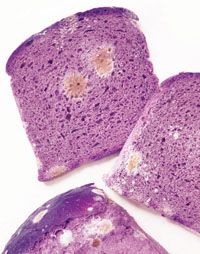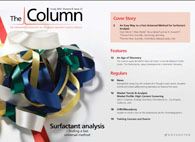Thought leader recipient
Agilent Technologies (Santa Clara, California, USA) has announced the recipients of its latest Thought Leader award: Dr Jens Frisvad and the centre for microbial biotechnology in the department of systems biology at the Technical University of Denmark.

Agilent Technologies (Santa Clara, California, USA) has announced the recipients of its latest Thought Leader award: Dr Jens Frisvad and the centre for microbial biotechnology in the department of systems biology at the Technical University of Denmark.
The centre is working to create a targeted metabolomics approach for thousands of compounds produced by aspergillus, penicillium and fusarium – filamentous moulds that frequently contaminate food and can lead to illness. Scientists will use mutable internal standards to calibrate changes in both chromatographic retention and mass-spec sensitivity in order to compare extracts over many years.
The award will provide the lab with use of a LC-QTOF system for discovery metabolomics, as well as a LC-QQQ system for target screening. Agilent will thereby be supporting research in food safety, specifically the metabolomics of mycotoxins (toxins made by mould).
Dr Frisvad commented, “Our research is aimed at showing the impact that analysis of LC-QTOF and LC-QQQ data can have on understanding the metabolomics of mycotoxins. We are extremely pleased that Agilent is helping us continue this important food-safety research.”
Mike McMullen, president of Agilent’s chemical analysis group, said, “Our support of the work being done at the centre for microbial biotechnology closely aligns with a major initiative at Agilent: providing tools and methods that help test the global food supply. By providing instruments to Dr Frisvad and his team, we continue Agilent’s long history of helping create innovative ways to improve food safety.”
For more information please visit www.agilent.comThis story originally appeared in The Column. Click here to view that issue.
AOAC International Awarded NIST Grant for Developing Drug Testing Standards
October 31st 2024The grant will be part of a new collaborative scientific initiative to address the need for standards that define the desired performance of lateral flow immunoassay test strips to detect illicit drugs in tablets and powders.
AI and GenAI Applications to Help Optimize Purification and Yield of Antibodies From Plasma
October 31st 2024Deriving antibodies from plasma products involves several steps, typically starting from the collection of plasma and ending with the purification of the desired antibodies. These are: plasma collection; plasma pooling; fractionation; antibody purification; concentration and formulation; quality control; and packaging and storage. This process results in a purified antibody product that can be used for therapeutic purposes, diagnostic tests, or research. Each step is critical to ensure the safety, efficacy, and quality of the final product. Applications of AI/GenAI in many of these steps can significantly help in the optimization of purification and yield of the desired antibodies. Some specific use-cases are: selecting and optimizing plasma units for optimized plasma pooling; GenAI solution for enterprise search on internal knowledge portal; analysing and optimizing production batch profitability, inventory, yields; monitoring production batch key performance indicators for outlier identification; monitoring production equipment to predict maintenance events; and reducing quality control laboratory testing turnaround time.
